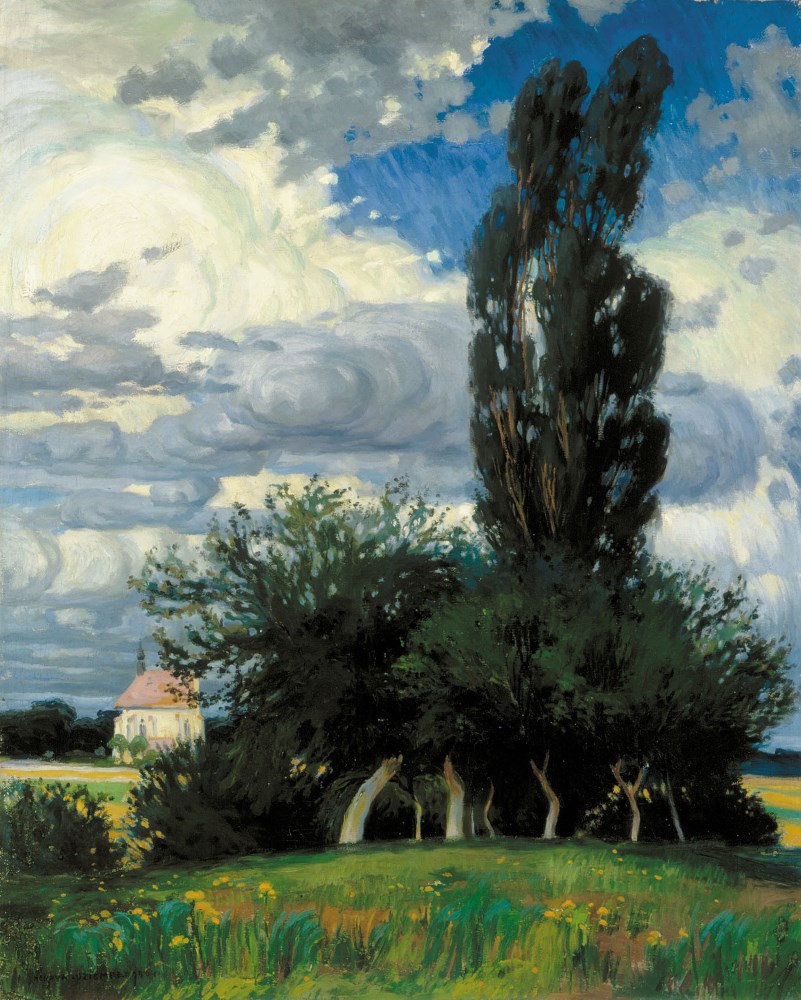Description:
Henryk Uziembło (Uziębło) (1879-1949) attended the Kraków Industrial School, then the Department of Decorative Painting at the Kunstgewerbeschule in Vienna. From 1902–1904 he studied at the Kraków Academy under the direction of Teodor Axentowicz and Stanisław Wyspiański. He also studied in Paris with Lucien Simon and René Xavier Prinet. He exhibited his works in Poland for many years. From 1905 onwards he was involved in artistic activities in the field of applied arts, creating stained glass windows and designing interiors. He was a member of the “Polish Applied Art“ association. In his work he dealt with both artistic craftsmanship and painting. Common motifs in his paintings are landscapes and portraits of mountain people in folk costumes.
Description of the image:
The work presents a summer, Podkraków landscape. The foreground is covered with lush grass, where orange mallow flowers can be found. The central point of the work is a row of trees interspersed with low shrubs. The grouped trees with exposed trunks form a kind of plinth for the much higher poplar, rising above their crowns. On the background, among the golden patches of fields, the outline of the church is visible at the right edge of the painting. Over the landscape, the sky is dotted with massive, billowing clouds.
The painting portrays a peaceful Polish landscape. The artist uses an intense, varied range of colors in the work, thus emphasizing the vitality of nature. The composition is based on the horizontal lines created by the successive strips of grass, trees and shrubs, and the strips of clouds appearing in the sky. The vertical accent is the title poplar emerging from the group of trees. The dynamism of the work is introduced by the sky full of clouds, which seem to be almost moving. They swirl and overlap. The way in which the work is composed – the low outlined horizon and the way in which the color patches are distributed – indicates inspiration from Ferdinand Ruszczyc‘s work.


